Perinatal Mental Health Support
Small Steps is a self-help support group for the parents, carers and guardians (including Dads) of children aged up to 2 years.
Sometimes you simply need to surround yourself with people who understand what you’re going through. We know how daunting baby groups and play dates can be, especially if you’re suffering with perinatal mental illness.
Facilitated by a trained group facilitator, Small Steps offers a calm community for parents who are struggling. They provide a safe space for you and your baby, where you can meet other parents, and chat, listen and share your experiences.
If you are finding being a new parent challenging, feel lonely and unable to socialise like you used to do and your mental health is getting on top of you come along.

Perinatal mental health
You may have heard of postnatal depression (PND) but there are also other conditions associated with maternal mental health. Perinatal mental health (PMH) concerns a woman’s emotional and psychological wellbeing during pregnancy, birth and beyond. PMH conditions include pre and postnatal depression, anxiety, obsessive compulsive disorder, post-traumatic stress disorder (PTSD), postpartum psychosis and birth trauma.
It’s important to seek help as soon as you can, if you think you or someone you know might be affected by any of these conditions.
Prenatal depression
Prenatal depression occurs during pregnancy. Everyone’s experience of prenatal depression (also known as antenatal depression) is different. But it’s important to keep a close eye on how you’re feeling, both mentally and physically.
What are the symptoms?
- Feeling low
- Anxiety
- Not enjoying life or pregnancy
- Loss of self-confidence
- Avoiding socialising
- Repetitive, obsessive, and compulsive behaviours and unpleasant thoughts
Postnatal depression
Postnatal depression (PND) is a common problem that occurs after pregnancy and affects more than 1 in 10 women within a year of giving birth. It can also affect dads and partners. PND can present itself in different ways, and many parents do not realise they have the condition because it can develop gradually over time.
What are the symptoms?
- Low mood and persistent sadness
- Lack of energy
- Difficulty bonding with baby
- Overeating and under eating for comfort
- Frightening and intrusive thoughts
- Lack of enjoyment and loss of interest in the wider world
- Trouble sleeping at night and feeling sleepy during the day
- Withdrawing from contact with other people
- Lack of concentration and difficulty making decisions
Postpartum psychosis
Postpartum psychosis is a rare but serious mental health problem that can affect women soon after giving birth. It’s also known as puerperal or postnatal psychosis.
What are the symptoms of postpartum psychosis?
- Hallucinations
- Delusions
- A manic or low mood
- Loss of inhibitions
- Feeling fearful or suspicious
- Confusion
- Behaving out of character
- Restlessness
Anxiety
- Perinatal anxiety can happen any time during pregnancy, through birth and after, and it’s common to experience it alongside depression. Someone suffering with prenatal (antenatal) or postnatal anxiety may feel tense, nervous and unable to relax. They may also avoid certain situations, experience panic attacks and suffer from repetitive, obsessive, and compulsive behaviours and unpleasant thoughts
What are the symptoms of perinatal anxiety?
- Restlessness
- Feeling tense and nervous
- Difficulty concentrating
- Feeling irritable
- Excessive worrying
- Avoidance of certain situations or places
- Difficulty falling or staying asleep
- Panic attacks – shortness of breath, feeling light-headed or dizzy, pounding or racing heartbeat, sweating or hot flushes, shaking, tingling, churning stomach, feeling faint
- Repetitive, obsessive, and compulsive behaviours and unpleasant thoughts
- Feeling sick
Birth trauma
Birth trauma might be due to one single event, or a mixture of experiences in pregnancy, during birth or after birth. It can be experienced after a physically or mentally exhausting birth, and can also be associated with post-traumatic stress disorder (PTSD).
What are the symptoms of Birth trauma?
- Flashbacks, nightmares or intrusive memories, which make you feel distressed and panicky
- Avoiding anything that reminds you of the trauma. This can mean refusing to walk past the hospital where you gave birth, or avoiding meeting other women with new babies
- Feeling hyper-vigilant. You’re constantly alert, irritable and jumpy, and worry that something terrible is going to happen to your baby
- Feeling low and unhappy. You may feel guilty and blame yourself for your traumatic birth, and you may have difficulty remembering parts of the birth
Dad’s mental health matters too
It’s understandable that we focus on mums in the postnatal period but let’s not forget dads who also need support.
Whether it’s sleep deprivation, money worries, new responsibilities, or the relationship dynamic shifting, dads also have a lot to take on board. This is a huge life change for both parents. On top of this, dads might feel guilty about what their partner is going through, knowing they aren’t the ones breastfeeding at 3am or healing from labour and birth.
The number of men who become depressed in the first year after becoming a dad is double that of the general population.
First time dads are particularly vulnerable. One in ten dads-to-be will also become depressed during their partner’s pregnancy.
Postnatal depression in dads can show itself in different ways
Symptoms can include:
- fear, confusion, helplessness and uncertainty about the future
- withdrawal from family life, work and social situations
- indecisiveness
- frustration, irritability, cynicism and anger
- marital conflict
- partner violence
- negative parenting behaviours
- alcohol and drug use
- insomnia
- physical symptoms like indigestion, changes in appetite and weight, diarrhoea, constipation, headaches, toothaches and nausea.





